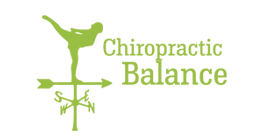A vegetarian diet has become increasingly popular over the last few years. With more and more choosing plant based options, how is this impacting these individuals overall health? There are many researched benefits to a plant based diet, but also a few downsides.
What are the benefits?
The benefits to vegetarian diets show:
- Lower body mass index (BMI) and reduced risk of obesity (1)
- Treatment and prevention of type 2 diabetes (2,7)
- Low in saturated fats and cholesterol free
- Treatment and prevention of cardiovascular disease - vegetarian diets have been shown to reduce heart disease by up to 32%. (7)
- Lower cancer rates (8)
- Environmental and ethical benefits - Up to 15% of global greenhouse gas emission is linked to livestock production!(9)
What are some risks?
Among the many benefits of adopting a vegetarian diet, there may be increased risks of developing deficiencies such as: (3)
- Anaemia - Iron deficiency anaemia has been linked to not getting enough iron in the diet. Iron plays an important role in carrying out bodily functions and decreased levels result in low energy levels, shortness of breath, headaches, dizziness, irritability and anaemia (4).
- Vitamin B12 Deficiency - Plant based diets (namely vegan diets) have been linked to low levels of vitamin B12. It is an essential nutrient and plays a role in production of red blood cells and DNA and supports the proper functioning of your nervous system (6). Vitamin B-12 is commonly found in meat and animal products (6). Plant based foods are lacking in vitamin B12. Low levels of vitamin B12 may lead to symptoms such as, fatigue, dizziness, muscle weakness, paleness, shortness of breath and hearing difficulties (6).
- Vitamin D deficiency - Vitamin D has a key role in regulating several functions throughout the body's systems, including the growth and development of the bones and teeth (10). The main food sources of vitamin D include oily fish, animal products and liver (11). It has been shown that 5% of New Zealand adults are deficient in vitamin D, whilst 27% are below the recommended limits (11). Deficiency in vitamin D has been linked to increased risk of fracture. (11)
- Zinc - zinc is an important nutrient as it plays roles in wound healing, growth and development during pregnancy, protein and DNA synthesis as well as aiding the immune system (12). Zinc is commonly found in oysters, red meat, poultry and seafood.
Things to Consider
If considering switching to a plant-based diet, be sure to consider potential deficiencies and include supplementation where needed to help promote a balanced diet. It is important to gain the right vitamins and minerals that are often overlooked as mentioned above. Finding the right diet is essential, as some individuals may thrive on plant based diets, whilst others may not.
Another approach is to reduce your portion size of meat consumption, or frequency of meat consumption. Try designating a couple of meat free days in your week or choose one week a month to be plant based.
It is advised to contact your local health care professional or nutritionist to help identify what diet will work best for you and your lifestyle.
Vegetarian diets have been proven to be effective for many, especially those looking to manage chronic health conditions. Plant based diets are also helpful in creating a more sustainable future with the reduction of greenhouse gas emissions. When considering switching to a more plant based option, it is important to consider potential nutritional gaps and use supplementation where necessary.


